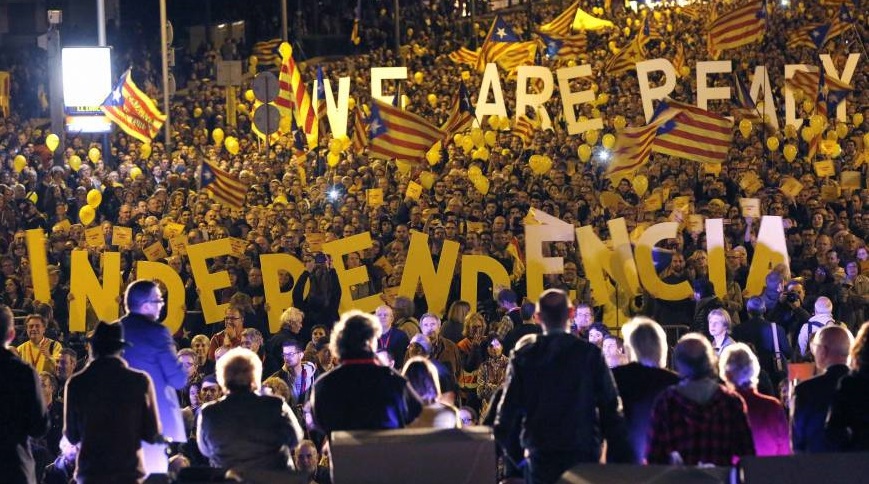Last Sunday November 9, the Catalan government hosted a non-binding referendum on Catalonia independence from Spain. More than 2.3 out of the 7.5 million Catalans turned out and 81% voted in favor of independence. The Spanish government refuses to recognize the poll, leaving a heavy political gridlock at stake.
Catalonia is not a lone star in the separatist sky. In Spain, the Basque Country historically has had a greater visibility given the actions of the E.T.A, an armed separatist organization. Nor is Catalonia alone in Europe, where countries like Belgium, United Kingdom, France and Italy, not to mention Ukraine and the Balkans, face various separatist or regionalist movements. Spain, like most European countries, is a state where there is not a single, unique, identifiable nation. Spain has multiple overlapping identities with a great diversity of languages, cultural traditions, backgrounds and perspectives.
Contrary to the Scotland referendum in September, where UK Prime Minister David Cameron authorized a binding referendum, Spanish Prime Minister Mariano Rajoy refused any dialogue or agreement regarding Catalonian independence. But Catalonia claimed democracy with democratic instruments to solve its territorial problem.
Back in 2010, Catalans reviewed its Statute of Autonomy in an attempt to get more competences from the central government. However, the Spanish Constitutional Court declared unlawful some key articles referred to the justice system, financial authority and the definition of Catalonia as a nation. After that judgment, political and social self-determination movements started to rise and build on a snowball strategy to ask a referendum on Catalonian independence.
In May 2010, approximately one million people demonstrated against the Spanish Constitutional Court’s decision. On September 11 2012, the Catalan national day, 1.5 million people took to the streets of Barcelona. A year later, 1.6 million people participated in a 250-mile walk throughout the territory of Catalonia, requesting the government to call on a referendum. By 2013, the idea of “I want to vote” and “I want to decide” was well spread and supported by the majority of the population. In September 2014, 1.8 million people gathered in Barcelona demanding the right of self-determination to be exercised in 2014.
The Spanish conservative government and the unionist parties (including the social-democrat party, PSOE) ignored Catalans’ demands and requests for dialog. In response, President Mas called for a non-binding referendum under Catalan law. However, the Spanish Constitutional Court suspended the Catalan referendum law, leaving a legal vacuum on how to proceed under the existing legal framework.
Catalonia is one of the wealthiest regions in Spain. Nevertheless, there is a 20% unemployment rate, leaving a significant portion of the population facing the risk of poverty. Social unrest is pervasive among social classes and age groups. In Barcelona, there are daily demonstrations against austerity programs and political corruption. The Spanish government’s dismissive attitude towards Catalan self-determination only adds to the political climate of anger and disillusion.
President Mas decided to continue with the referendum despite the Constitutional Court suspension. As a result, the referendum became a political and social statement of the willingness of the Catalan people to truly exercise their rights and live in their sovereign democracy.
Catalonia as a nation has the political right to decide democratically on its future. The Popular Party and the PSOE are avoiding a political battle exploiting the Spanish Constitution, a text adopted in 1978 after the Franco dictatorship. Because the text does not reflect fully the reality of the country, it is illegitimate. Democracy should be a dynamic system where laws and constitutions are reformed to fit new realities and the desire of the majority is heard.
Catalans had a referendum, albeit a non-binding one, but with significant participation. The Spanish government must find a political and democratic solution that answers Catalan demand. A binding referendum where Catalan people can decide their own future is the only democratic solution that respects the right of a nation to self-determination.
Photo credit: Reuters

